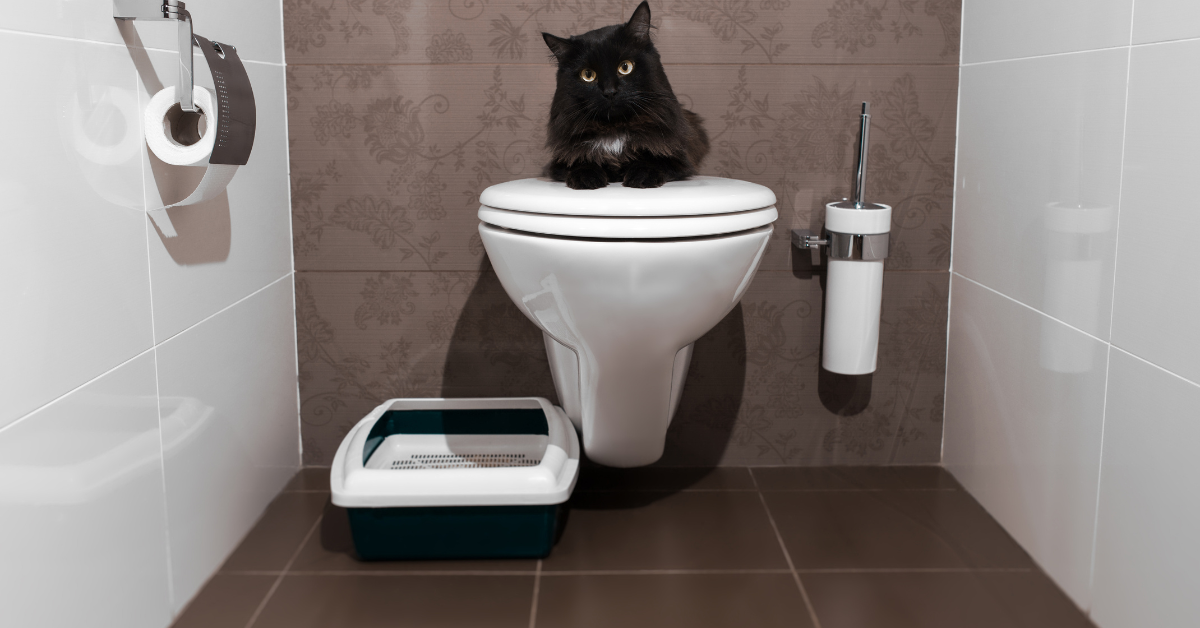Reasons You Should Never Flush Cat Poop Down Your Toilet - Crucial Facts
Reasons You Should Never Flush Cat Poop Down Your Toilet - Crucial Facts
Blog Article
What're your insights and beliefs about Don’t flush cat feces down the toilet?

Introduction
As feline owners, it's essential to be mindful of how we deal with our feline good friends' waste. While it may seem convenient to purge cat poop down the commode, this practice can have harmful effects for both the environment and human health and wellness.
Alternatives to Flushing
Fortunately, there are safer and more liable methods to take care of feline poop. Think about the following alternatives:
1. Scoop and Dispose in Trash
The most common method of getting rid of feline poop is to scoop it right into an eco-friendly bag and toss it in the garbage. Make certain to use a committed litter inside story and take care of the waste promptly.
2. Usage Biodegradable Litter
Choose biodegradable cat litter made from products such as corn or wheat. These trashes are environmentally friendly and can be securely dealt with in the trash.
3. Hide in the Yard
If you have a lawn, take into consideration burying pet cat waste in a designated area far from veggie yards and water sources. Be sure to dig deep adequate to stop contamination of groundwater.
4. Mount a Pet Waste Disposal System
Buy a family pet garbage disposal system specifically developed for cat waste. These systems make use of enzymes to break down the waste, decreasing smell and environmental impact.
Wellness Risks
In addition to environmental issues, purging pet cat waste can additionally pose health risks to humans. Cat feces may include Toxoplasma gondii, a parasite that can cause toxoplasmosis-- a potentially severe health problem, specifically for expectant ladies and individuals with weakened body immune systems.
Ecological Impact
Flushing pet cat poop presents damaging virus and parasites into the water supply, posturing a substantial threat to aquatic ecological communities. These contaminants can negatively impact aquatic life and compromise water quality.
Verdict
Responsible family pet possession prolongs past offering food and shelter-- it additionally includes proper waste management. By avoiding flushing pet cat poop down the toilet and choosing alternate disposal techniques, we can reduce our environmental impact and safeguard human health and wellness.
Why Can’t I Flush Cat Poop?
It Spreads a Parasite
Cats are frequently infected with a parasite called toxoplasma gondii. The parasite causes an infection called toxoplasmosis. It is usually harmless to cats. The parasite only uses cat poop as a host for its eggs. Otherwise, the cat’s immune system usually keeps the infection at low enough levels to maintain its own health. But it does not stop the develop of eggs. These eggs are tiny and surprisingly tough. They may survive for a year before they begin to grow. But that’s the problem.
Our wastewater system is not designed to deal with toxoplasmosis eggs. Instead, most eggs will flush from your toilet into sewers and wastewater management plants. After the sewage is treated for many other harmful things in it, it is typically released into local rivers, lakes, or oceans. Here, the toxoplasmosis eggs can find new hosts, including starfish, crabs, otters, and many other wildlife. For many, this is a significant risk to their health. Toxoplasmosis can also end up infecting water sources that are important for agriculture, which means our deer, pigs, and sheep can get infected too.
Is There Risk to Humans?
There can be a risk to human life from flushing cat poop down the toilet. If you do so, the parasites from your cat’s poop can end up in shellfish, game animals, or livestock. If this meat is then served raw or undercooked, the people who eat it can get sick.
In fact, according to the CDC, 40 million people in the United States are infected with toxoplasma gondii. They get it from exposure to infected seafood, or from some kind of cat poop contamination, like drinking from a stream that is contaminated or touching anything that has come into contact with cat poop. That includes just cleaning a cat litter box.
Most people who get infected with these parasites will not develop any symptoms. However, for pregnant women or for those with compromised immune systems, the parasite can cause severe health problems.
How to Handle Cat Poop
The best way to handle cat poop is actually to clean the box more often. The eggs that the parasite sheds will not become active until one to five days after the cat poops. That means that if you clean daily, you’re much less likely to come into direct contact with infectious eggs.
That said, always dispose of cat poop in the garbage and not down the toilet. Wash your hands before and after you clean the litter box, and bring the bag of poop right outside to your garbage bins.
https://trenchlesssolutionsusa.com/why-cant-i-flush-cat-poop/

Hopefully you liked our topic on Can You Flush Cat Poo or Litter Down the Toilet?. Thanks a lot for taking the time to read through our piece. Liked our blog posting? Please share it. Help another person check it out. Thanks so much for going through it.
Request A Quote Report this page